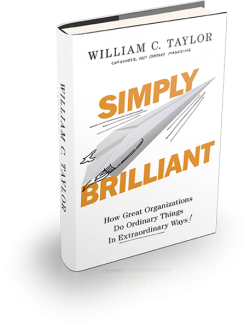Last week, the front page of the New York Times carried an in-depth report on a “broad and transformative trend” in Russia. It had nothing to do with more democracy or less corruption. It had to do with better customer service—specifically, an intense focus inside Aeroflot, the infamous Russian airline, to teach flight attendants how to smile.
“Anna, you just showed her the champagne bottle but didn’t say anything,” one instructor coaxed a young employee. “This is the silent service of Soviet times. You need to talk to her. And you need to smile and smile and smile.”
I found two things about the report especially noteworthy. First, these basic reminders are having a revolutionary impact at Aeroflot. According to the Times, customer surveys indicate that the airline now has the best service of any carrier in Eastern Europe, including the best the West has to offer.
Second, Aeroflot’s program comes at a time when the business culture in the United States seems to be questioning the importance, the value, even the authenticity of human-to-human connections. In an era of cutthroat competition, deep-seated cynicism, and the digital disruption of everything, does it make sense to make big bets on the power of small acts of kindness?
Over at HBR, I just posted an essay about the power of emotional labor and why, in a world being reshaped by technology, authentic gestures of humanity count for so much. You can read it here.


